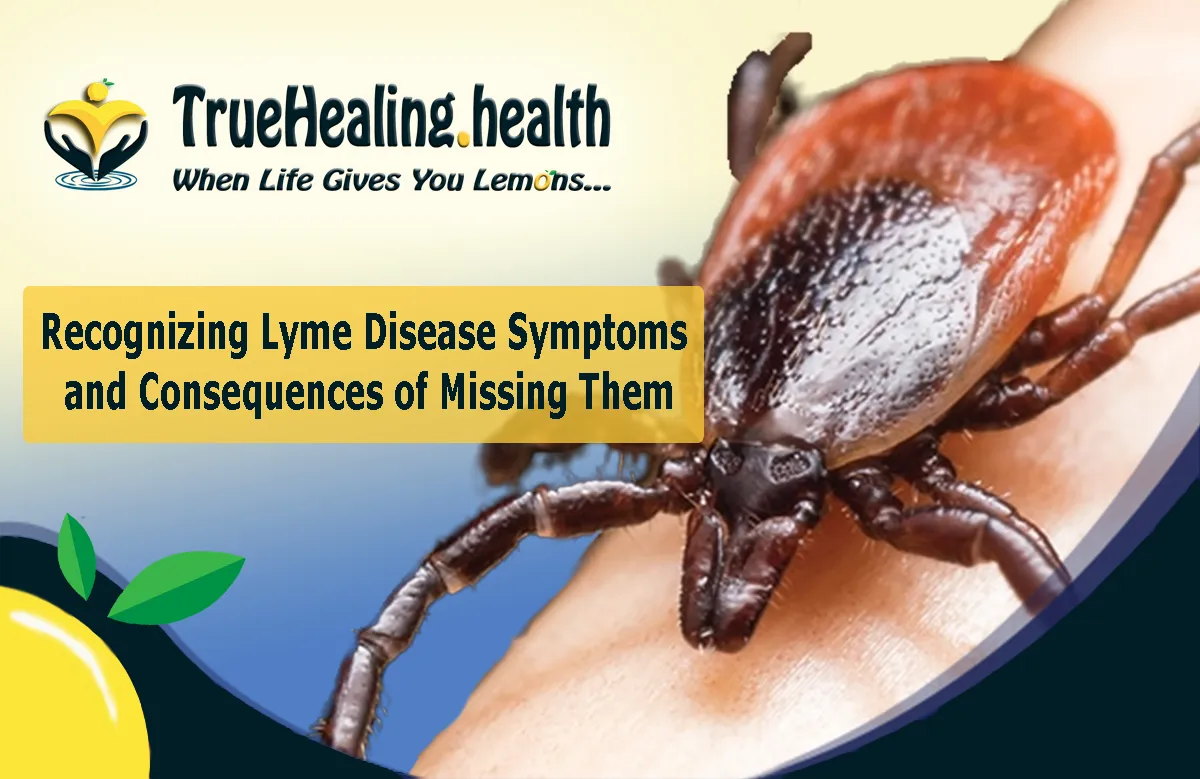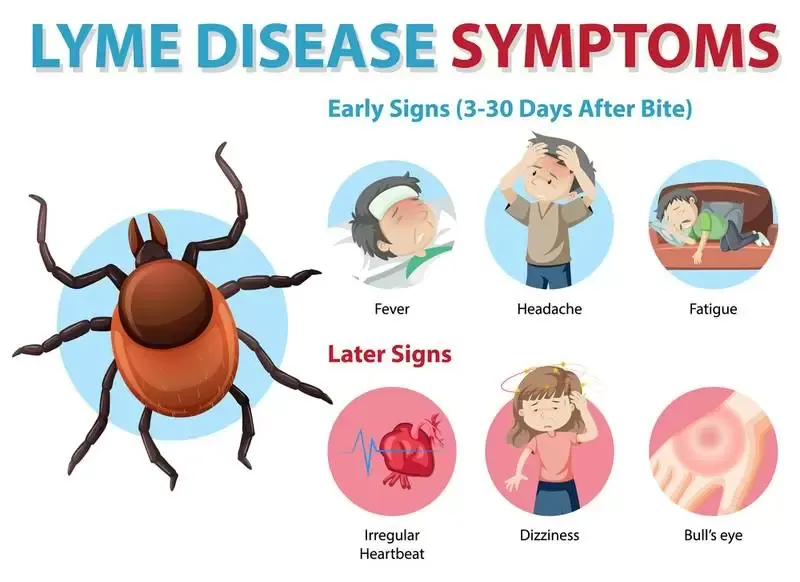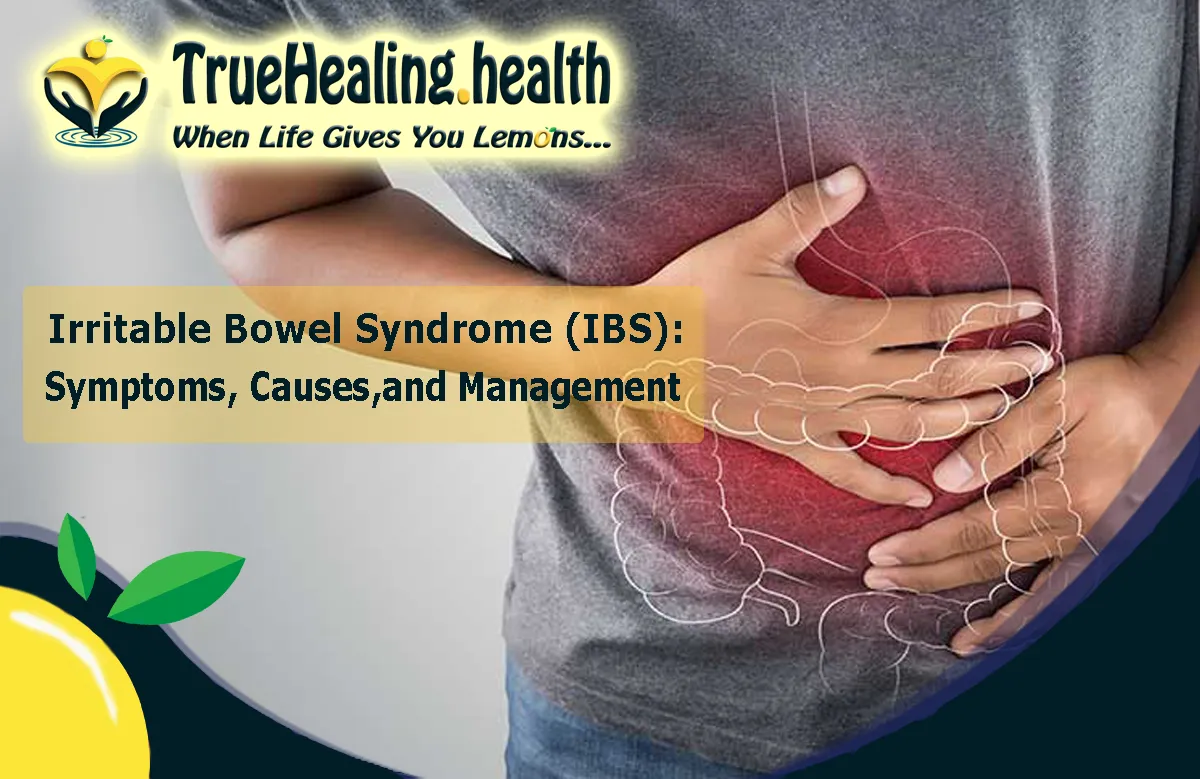Recognizing Lyme Disease Symptoms and Consequences of Missing Them
Lyme disease is a bacterial infection caused by the spirochete bacterium Borrelia burgdorferi, commonly transmitted through tick bites. It is essential to understand the symptoms of Lyme disease to ensure timely diagnosis and appropriate treatment. As a holistic health expert, I believe in exploring natural alternatives for symptom management while emphasizing the significance of early detection. Let's delve into the symptoms of Lyme disease and the potential consequences of missing them.

Symptoms of Lyme Disease
Early Symptoms Lyme Disease:
- Bull's-eye rash (Erythema migrans): The classic sign of Lyme disease is a circular rash with a clear center, resembling a bull's-eye. It usually appears at the tick bite location and expands over time.
- Flu-like symptoms: Fever, chills, headache, fatigue, and swollen lymph nodes are common flu-like symptoms associated with Lyme disease.
- Fatigue and muscle aches: Profound fatigue and muscle aches, and stiffness can occur in the early stages of Lyme disease.
Later Symptoms Lyme Disease:
- Joint pain and swelling: Lyme disease can lead to persistent joint pain and swelling, often affecting large joints such as the knees.
- Neurological symptoms: Lyme disease can cause neurological complications, including numbness, tingling, shooting pains, and muscle weakness. It may also result in facial paralysis (Bell's palsy) and difficulty concentrating and memory.
- Heart problems: In rare cases, Lyme disease can affect the heart, leading to irregular heart rhythms, palpitations, and chest pain.
- Cognitive difficulties: Lyme disease may contribute to cognitive impairments, such as brain fog, difficulty with multitasking, and short-term memory problems.
Consequences of Missing Symptoms
Missing the symptoms of Lyme disease can have several consequences:
- Progression of Lyme disease: Without early intervention, Lyme disease can progress and spread throughout the body, potentially affecting multiple organs and systems.
- Chronic Lyme disease: Delayed diagnosis and treatment may increase the risk of developing chronic Lyme disease, leading to long-term health complications and persistent symptoms.
- Impact on overall health and well-being: Untreated Lyme disease can have a significant impact on a person's overall health, causing a decline in physical, mental, and emotional well-being.
Holistic Approaches to Lyme Disease Management
While medical interventions like antibiotics are commonly prescribed for Lyme disease, holistic approaches can complement the treatment process and support overall well-being. Here are some holistic measures that can be incorporated:
Supportive Measures:
- Healthy diet and lifestyle: Consuming nutrient-dense foods, such as fresh fruits and vegetables, lean proteins, and healthy fats, can boost the immune system and aid recovery. Regular exercise, stress management techniques, and adequate sleep are also crucial for healing.
- Adequate rest and stress management: Rest is vital for the body to heal and recover. Managing stress through meditation, deep breathing exercises, and gentle movement practices can contribute to overall wellness.
- Nutritional supplementation: Certain supplements, such as probiotics, omega-3 fatty acids, vitamin C, and antioxidants, may support immune function and help alleviate symptoms.

Natural Remedies for Symptom Relief:
- Herbal remedies: Herbs like Japanese knotweed, cat's claw, and garlic have shown potential antimicrobial and anti-inflammatory properties that may help manage Lyme disease symptoms. Consult with an herbalist or healthcare professional for appropriate dosages and guidance.
- Essential oils: Some essential oils, such as lavender, frankincense, and tea tree oil, possess antimicrobial and anti-inflammatory properties that could be beneficial. Dilute essential oils properly and use them topically or aromatically after seeking guidance from a qualified aromatherapist.
- Homeopathic treatments: Homeopathy offers individualized remedies that stimulate the body's innate healing abilities. Consult with a trained homeopath to explore potential remedies for symptom relief and support during Lyme disease treatment.
Seeking Professional Guidance:
While holistic approaches can be valuable, it's essential to collaborate with healthcare professionals who specialize in Lyme disease. They can provide an accurate diagnosis, monitor your condition, and guide you in integrating holistic practices alongside conventional treatments. This ensures a comprehensive approach that addresses your unique needs.
Conclusion
Recognizing Lyme disease symptoms is crucial for early detection and prompt treatment. Missing these symptoms can lead to the progression of the disease and potential long-term complications. As a holistic health expert, I advocate for incorporating supportive measures, natural remedies and seeking professional guidance alongside medical interventions. Balancing holistic approaches with conventional treatments can optimize overall well-being and support the body's healing process. Remember, the key lies in a comprehensive and individualized approach to Lyme disease management.

















